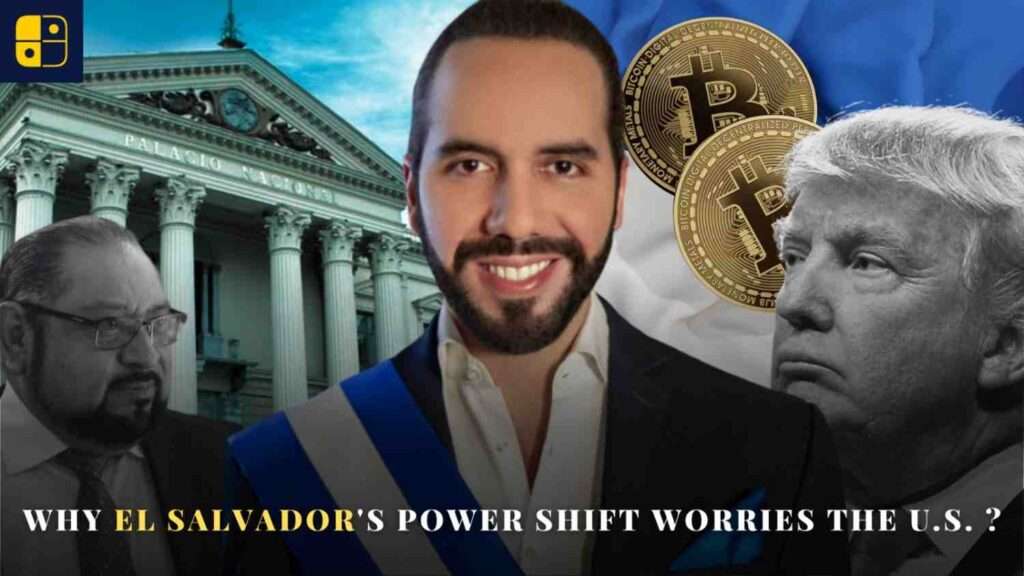El Salvador’s President Nayib Bukele has captured headlines again after the country’s parliament voted to abolish presidential term limits, effectively allowing indefinite reelection. While the move has received overwhelming support domestically, it has deepened tensions with the United States a long-standing ally and economic partner. Despite Bukele’s soaring popularity at home, Washington’s discomfort with his leadership style reflects a growing rift in U.S.–El Salvador relations.
Domestic Popularity, Global Scrutiny
Nayib Bukele’s appeal in El Salvador is undeniable. With approval ratings that often soar above 80%, he is seen by many Salvadorans as a reformist, modern leader who has tackled the country’s decades-long plague of gang violence and political corruption. His widely publicized “mega prison” crackdown on gangs, digital governance initiatives, and bold economic experiments like adopting Bitcoin as legal tender have all contributed to his cult-like popularity. However, this domestic admiration has not translated into international endorsement, particularly from the United States.
Clashes Over Democracy and Institutional Integrity
At the heart of U.S. concerns is Bukele’s rapid consolidation of power. In May 2021, shortly after his party won a legislative supermajority, the new National Assembly voted to remove the Constitutional Court’s top judges and the Attorney General all without due process. Critics, including the U.S. State Department, called it a direct attack on the rule of law and separation of powers. Then came the now-infamous incident in 2020 when Bukele, flanked by armed soldiers, entered the Legislative Assembly to pressure lawmakers into approving a security loan. The image of military force in a democratic chamber was widely condemned across the world especially in Washington.
Sanctions, Lists, and Aid Suspensions
As Bukele’s grip tightened, the U.S. responded with concrete actions. Several Salvadoran officials were added to the Engel List, a U.S. government document that names Central American actors deemed corrupt or undemocratic. The Biden administration also suspended direct aid to some Salvadoran law enforcement and justice institutions, citing human rights and governance concerns. Bukele, for his part, has dismissed these moves as hypocritical and paternalistic, insisting that El Salvador has the sovereign right to chart its own course.
Crypto Controversy and Economic Tensions
Another flashpoint came in 2021 when Bukele made El Salvador the first country in the world to adopt Bitcoin as legal tender. While celebrated by crypto enthusiasts, the move alarmed the International Monetary Fund (IMF), the World Bank, and U.S. Treasury officials, who warned about the risks of money laundering, volatility, and fiscal instability. Bukele’s defiance of global financial institutions often accompanied by mocking tweets further cemented his reputation as a disruptor, but also widened the ideological divide between his government and Washington.
Nationalism vs. Diplomacy
Bukele has skillfully used nationalism to bolster his image. He frequently paints critics including the U.S. as out-of-touch elites trying to control or sabotage El Salvador’s progress. His messaging resonates with Salvadorans tired of traditional politicians and outside interference.
But for the United States, Bukele’s rhetoric and his actions are viewed as part of a worrying regional trend toward authoritarian populism, similar to developments in Venezuela and Nicaragua. The indefinite re-election law has only strengthened that narrative.
What’s at Stake?
El Salvador remains economically and socially tied to the U.S.
- Over 2 million Salvadorans live in the U.S., sending back billions in remittances each year.
- The U.S. is a key trading partner and provides humanitarian aid.
- Instability or repression in El Salvador could contribute to increased migration, a politically sensitive issue in both countries.
As Bukele steers El Salvador down an increasingly centralized path, the U.S. faces a diplomatic dilemma: How to engage a popular leader without endorsing authoritarianism.
Conclusion
President Bukele’s transformation of El Salvador has captured the world’s attention and concern. As he charts an independent, often confrontational course, the U.S. must decide how to balance democratic values with geopolitical pragmatism. The road ahead will test not just the resilience of Salvadoran democracy, but also the flexibility and resolve of U.S. foreign policy in Latin America.

